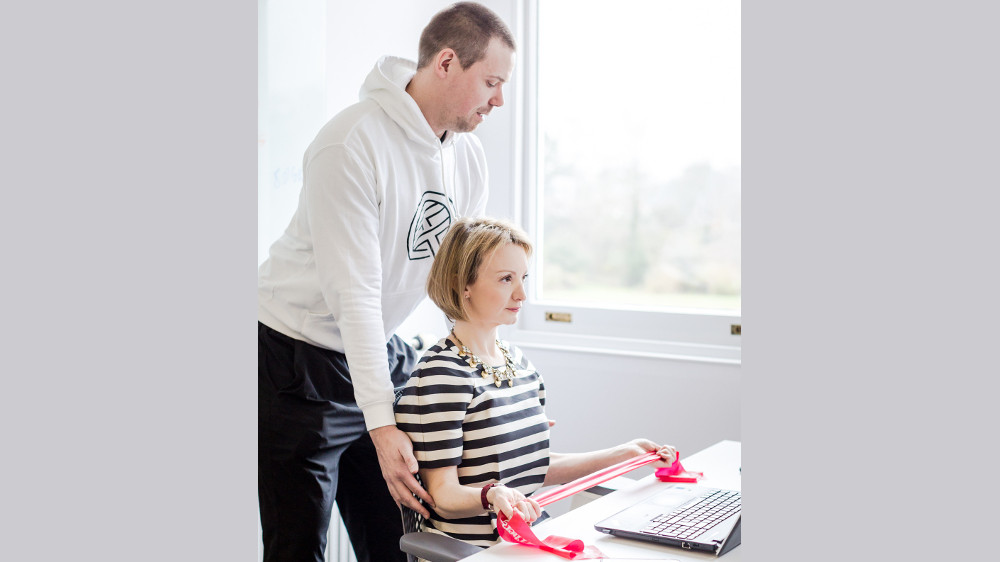Office workers’ sedentary lifestyle poses a risk to their health, says Peter Haling from The Health Quest. Here are his tips for busy PAs to sneak in a bit of exercise at their desk
Anyone who’s ever had back pain will know just how debilitating it can be. According to the UK Statistics Authority (2015), 10 million work days and £1 billion of revenue are lost annually to back aches, twinges and sharp pains. With so many of us affected, back health and posture awareness needs to be part of the workplace agenda. As a personal trainer who’s qualified in C.H.E.K Scientific Back Training, one of the most common causes of trouble that I see time and time again is bad posture caused by sitting at a desk all day.
Modern lifestyles and long working hours force us to stay seated, increasing the pressure in discs in the spine by 40%. Staring down at a laptop while sitting will have a detrimental and long-term effect on the health of your back, causing pain, spasm and worse.
Over the last few years, I’ve worked with PAs of all ages who need help with back pain and reassessing their posture. I’ve seen young women who first experience issues on returning to work after maternity leave; the combination of carrying children, balancing heavy shoulder bags and sitting on unsupportive office chairs is a menacing mix that can start to formulate during pregnancy, playing havoc with skeletal structures.
One working mum who noticed the tell-tale twinges after the birth of her son was company director Laura Caudery. Her case was text book – chronic neck and shoulder pain caused by working on a computer where the head moves forward of the chest placing a lot of stress on the cervical (neck) and thoracic (upper back) vertebrae. She also showed signs of a ‘flat back’, a common complaint of many office works caused by long periods sitting, which often leads to a disc bulge and sciatic pain down the leg, foot, or feet.
Working with Laura led me to devise some simple but hugely beneficial exercises that office workers could perform easily from their desk during the day.
Deskercise will improve posture, prevent future pain and injury, and even tone the glutes without having to hit the gym in your lunch break. The beauty being that once you’ve mastered the moves, you can integrate it seamlessly into your day, without breaking a sweat.
Laura’s rehabilitation has been so successful that she has implemented a desk analysis scheme at her business centre, Fetcham Park in Surrey. But of course not all companies and
organisations have posture awareness schemes in place. If you’re concerned about back pain or bad posture, try this simple deskercise.
External shoulder rotations using resistance band to prevent RSI
This exercise reminds you to sit in a nice, upright position with a neutral spine. Moving the hands outwards makes the shoulders rotate externally.
- Start with your elbows bent at 90 degrees, holding the band.
- Push your elbows against your body and don’t allow them to move. Now lift the crown of your head towards the ceiling to be as tall as you possibly can, lift your chest up, pull your shoulders back and gently draw your belly button in.
- While holding onto the band, slowly move your hands outwards and away from each other, keeping that 90-degree bend. Repeat 15-20 times for three rounds during your day.
Peter Haling is an ex-professional basketball player turned qualified personal trainer and health and fitness expert. He specialises in back pain and rehabilitation, and has helped clients recover after injury. Peter is also a qualified sports nutrition and weight loss consultant, certified metabolic typing advisor and Titleist Performance Institute certified golf fitness trainer. thehealthquest.co.uk















